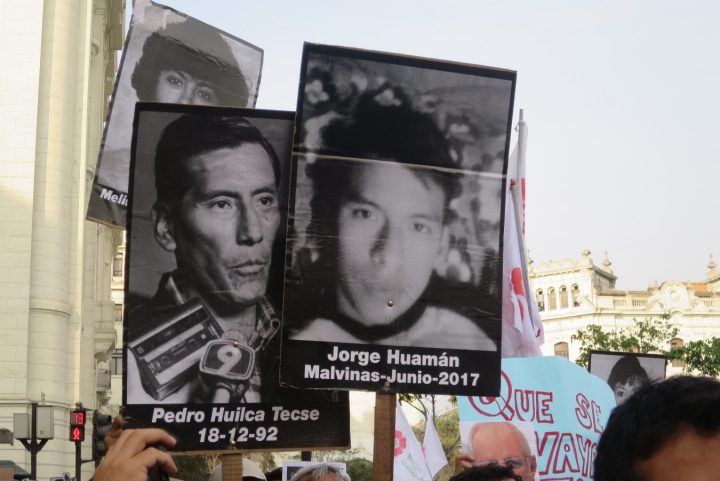The latest protests by the people of Peru in recent days as a response to the amnesty given for “humanitarian” reasons to former President Alberto Fujimori, highlight the common feeling of rage against the mockery and abuse of the word “reconciliation” by the convicted former President. The protests by Peruvians are a clear demonstration of what reconciliation doesn’t look like. If, however, we would like to see what reconciliation really is, how a dictator or a cruel leader could invoke it, and under which circumstances we could start to discuss it, then it will surely be a difficult task. That is because this is a very new process.
Is someone who has committed murders, or who is responsible for mass disappearances, or the widespread exercising of violence entitled to talk about reconciliation? Would being sentenced to 25 years’ jail time, as happened in Fujimori’s case, be enough for the people to reconcile with his terrible actions? And what about Fujimori himself? Are 25 years of punishment enough for him to reconcile with the dark side of his existence?
Reconciliation can only happen when it is wanted. It may take place sooner or later, but it must be wanted. No process of reconciliation can begin when one side imposes the time for forgiveness and reconciliation on the other. So if Fujimori isn’t abusing the word “reconciliation” and its meaning, then what could be the framework in which both sides could talk about this process?
Fujimori has a long way to go. This is beyond any doubt. I wonder if in the course of history there has ever been a dictator or cruel leader who ever recognized his own crimes. Was there ever a leader who publicly explained the circumstances in which he committed such atrocities and exercised such massive violence? Accepting his crimes, without using any kind of justification, could be a start. There is no “national interest” that can justify torture or killing.
As for the survivors and the families of the victims, it is important that the perpetrator establishes a constant dialogue. What if they don’t want such a dialogue? In this case let it be a constant open dialogue only from his part. Other actions and projects for the community are needed. If there has been wealth accumulated since the time of his tough governance, he must find a way to invest it in favour of the community, in favour of reconciliation. We’re talking about social welfare projects, monuments that recall why such actions should not happen again, the funding of groups that work for direct democracy and other democratic ways of making decisions, about nonviolence, about minority rights, etc.
Writing letters to today’s cruel leaders from a reformed one is also a way of acting towards reconciliation. Highlighting the forces interested in imposing such leaders around the globe in order to serve their special interests is another way towards reconciliation. Writing a book based on real facts, a book about the orders he gave for massive executions could also be a redemption process and an asset for all mankind.
All of the above could be done by the convict while still in prison. If he really wants to understand the dark side that pushed him to do such terrible actions, the fact that his freedom is restricted wouldn’t be enough to stop him.
What if taking the initiative for some of the above mentioned actions weren’t enough for the people to be convinced to enter into the same path of reconciliation with him? One thing would be certain: his own process towards reconciliation would have started, despite the fact that people don’t accept it. We’re talking after all about people who, for no reason, had to deal with torture, victims and losses. Well, even those people have to do something about this burden and must find a way to cope with what happened to them if they don’t want to continue poisoning future generations. Even if Fujimori were to be kept in jail, because justice was being done, this wouldn’t stop the poison.
The process of reconciliation is long. Sometimes it takes years or a whole lifetime even with deeds less barbaric than murder and torture. Society falsely identifies justice with true reconciliation; leaving wounds open while at the same time thinking that they’re healed. But regardless of justice or amnesty, one’s conscience knows if the farewell to this space and time will be bitter or sweet. Only the conscience knows.






